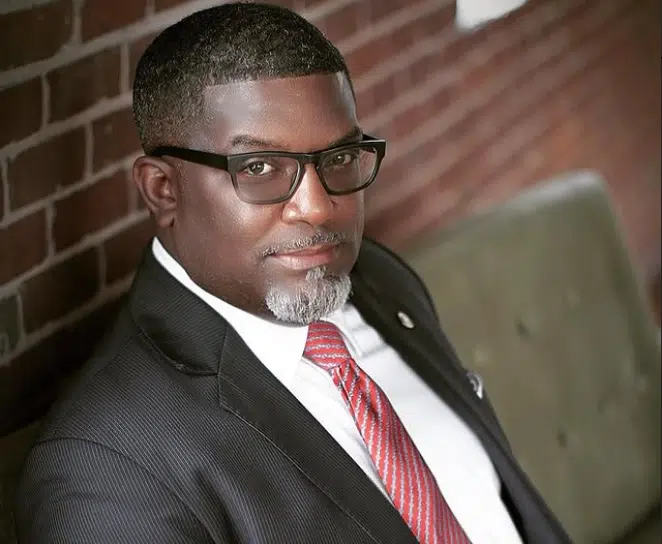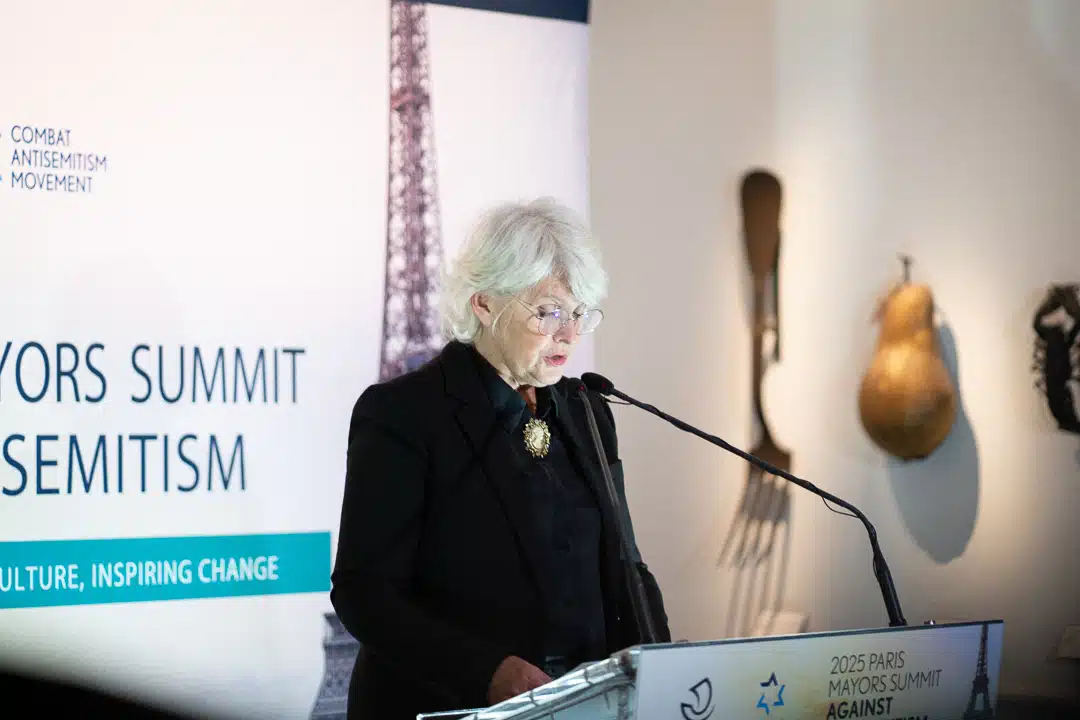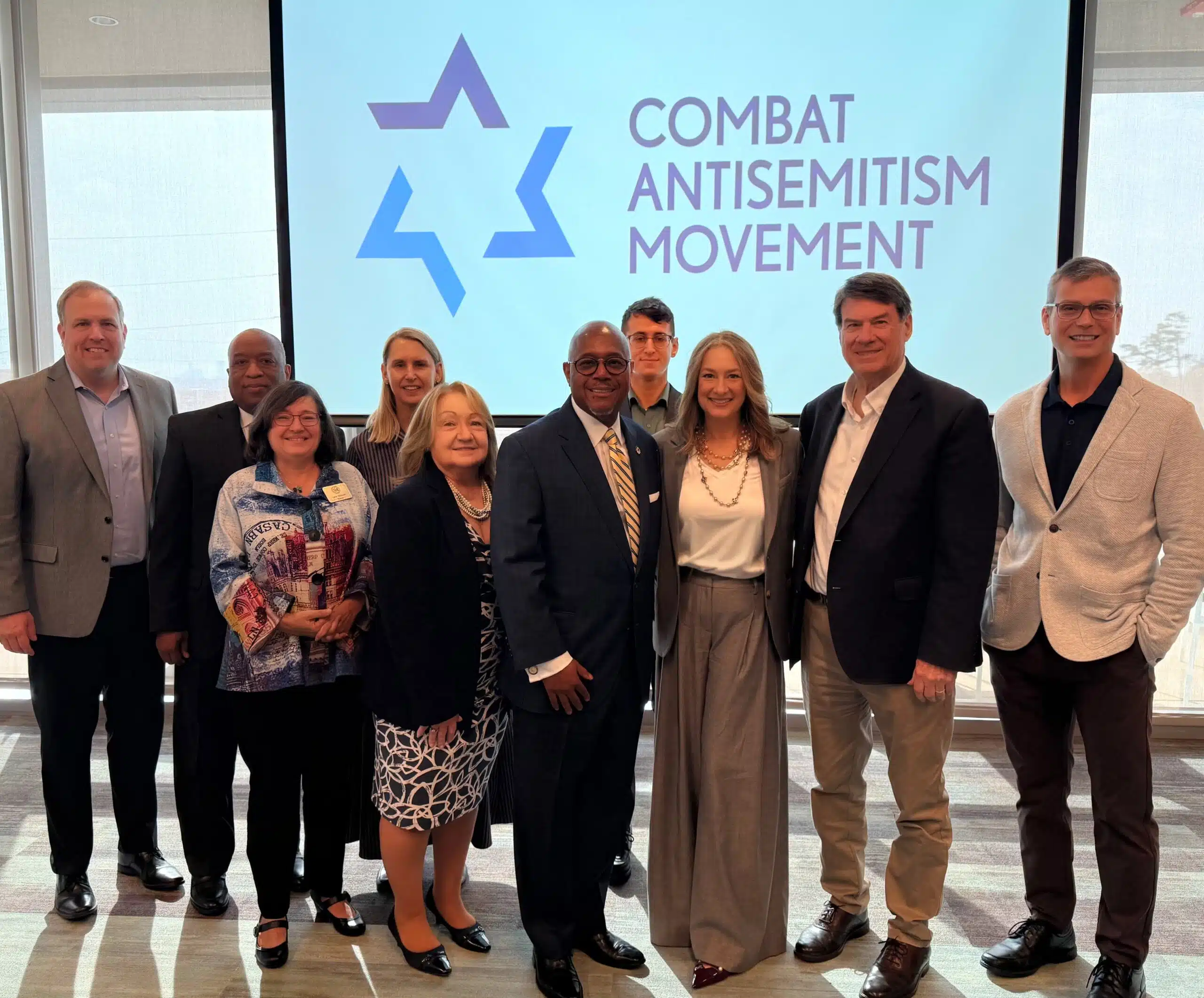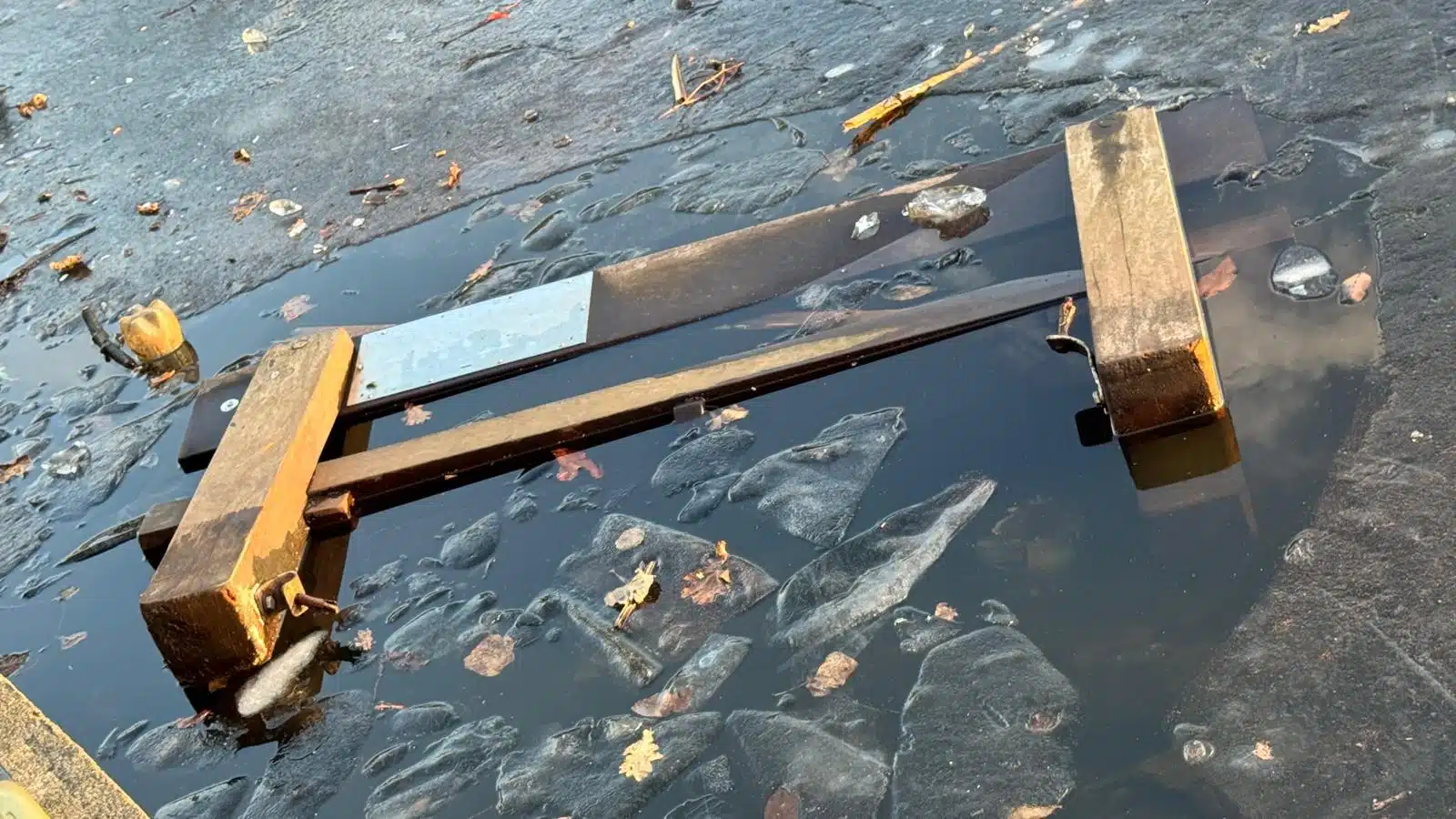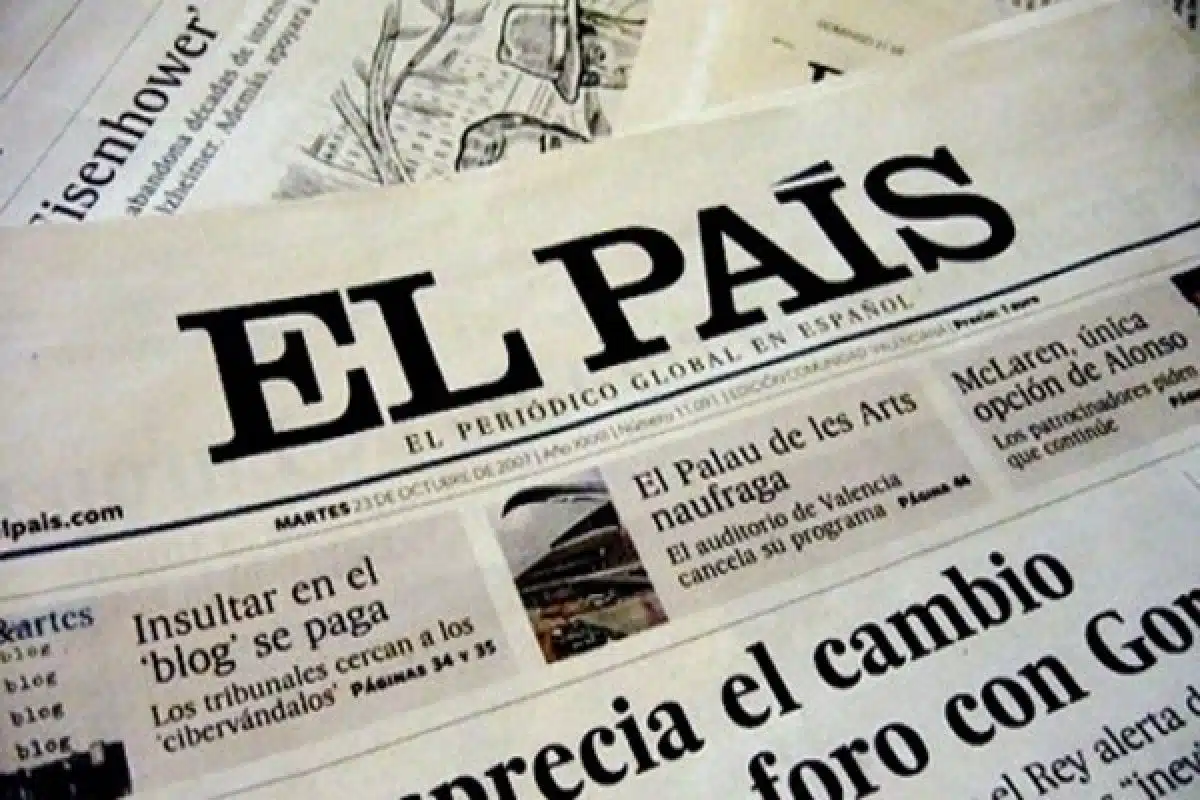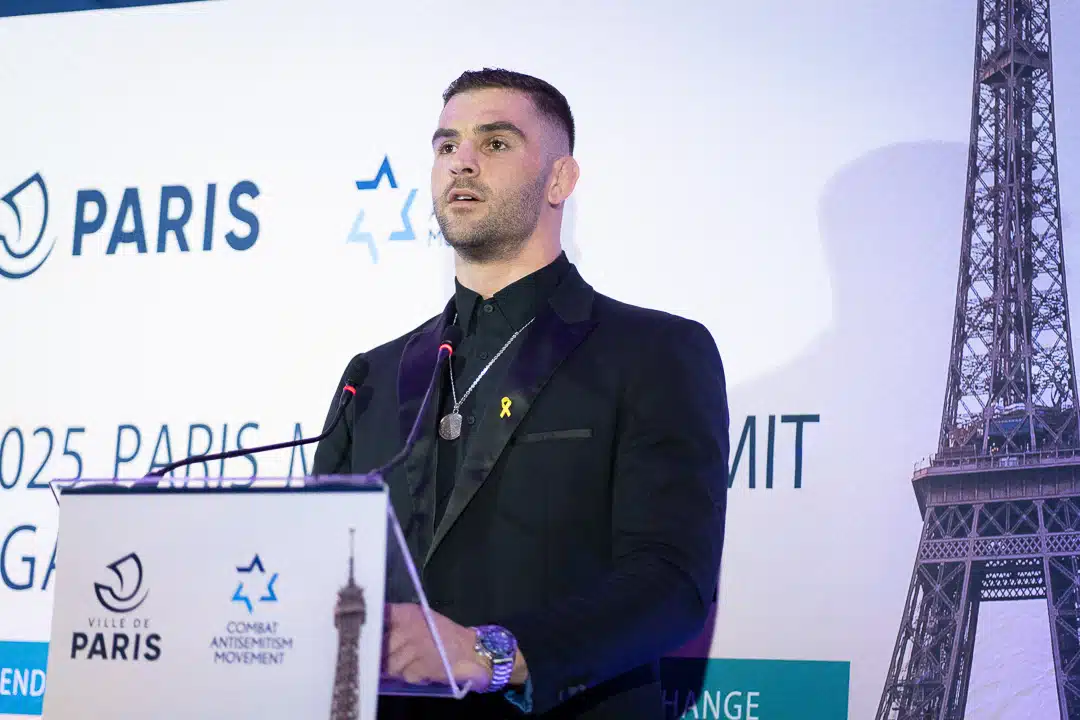
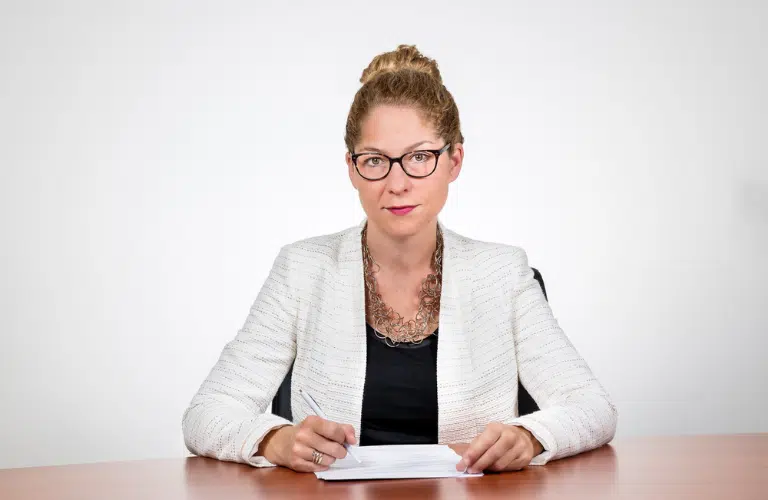
Fighting Antisemitism Is Key to Protecting and Promoting Human Rights and Equality Globally, Croatian Ombudswoman Tells CAM
The Ombudswoman of the Republic of Croatia, Tena Šimonović Einwalter, is a commissioner of the Croatian Parliament with a mandate to operate independently and autonomously to protect and promote human rights and fundamental freedoms, combat discrimination, and prevent torture.
In remarks she delivered earlier this year at a Yom HaShoah commemoration hosted by the Combat Antisemitism Movement (CAM), Ombudswoman Šimonović Einwalter — who also currently chairs the Executive Board of the European Network of Equality Bodies (EQUINET) and represents Croatia at the Council of Europe’s European Commission against Racism and Intolerance — highlighted the importance of Holocaust education.
Next March, Croatia will assume the Presidency of the International Holocaust Remembrance Alliance (IHRA) for a one-year term.
Ombudswoman Einwalter was recently interviewed by CAM Editor-in-Chief Barney Breen-Portnoy about her work, with a focus on her efforts to fight Jew-hatred.
A transcript of the conversation follows:
What are the latest and most relevant developments in the international human rights fora when it comes to combating antisemitism?
We have seen a number of strong international initiatives recently that stand against Holocaust denial and antisemitism while focusing on education as key — within the EU, the Council of Europe, and United Nations.
In 2020, the EU published its Anti-racism Action Plan for the next five years, 2020–2025, recognizing that various forms of racism, including antisemitism, undermine the value of a person based on stereotypes and prejudice, while also emphasizing the dangers of unconscious bias that can be equally damaging.
Last year, the European Commission against Racism and Intolerance (ECRI), an independent body of experts mandated by the Council of Europe, updated its General Policy Recommendation on preventing and combating antisemitism. It is set to help the efforts of preventing the increasing antisemitism and attacks on Jewish people in many parts of Europe. I participated in the preparation of the recommendations as a member and one of the vice-presidents of ECRI and think that ECRI has rightly made a strong emphasis on education.
In addition, in January this year, the UN General Assembly adopted a resolution that condemns denial and distortion of the Holocaust, asks member states to develop programs to educate future generations, and urges social media companies to take active measures to combat antisemitism and Holocaust denial or distortion.
Most recently, this June, the Council of Europe’s Parliamentary Assembly adopted a resolution stating deep concern over the rising hatred and violence against Jewish people in Europe in the past years, justifiably calling it “an attack against human rights” and “a threat to democracy,” while calling on states to consider the issue a political priority.
As an expert and as well as head of a national human rights institution and a national equality body, I would love to be able to say that these efforts are not pressing and necessary, but unfortunately, they are. We know that more than 80 years after the Second World War began, antisemitism and hate crime toward Jews are still present. More precisely, in the biggest survey among Jews in the world conducted in 2018 by the EU Agency for Fundamental Rights (FRA), 9 in 10 of them said they felt that antisemitism had increased in their country in the past five years. In addition, 1 in 4 said they experienced antisemitic harassment at least once in past year.
No one should be in a situation where going out of your home, or going online, includes fears from being attacked in some way because of who you are (or are perceived to be), because of your ethnicity or religion or another characteristic. That means you are not free, that your human rights and freedoms are hostage to hate and prejudice — which is unacceptable.
Fake news and disinformation can fuel antisemitism, especially online — what does that say about the scope of action needed?
Wide and decisive action in needed since the internet has made it so much more complicated and harder to fight antisemitism, with the social media, comment sections on websites, blogs, and forums making it easy to hide behind the keyboard, have an audience, and feel free to let the worst out of them. This does not only poison the individual, but the society in the whole, as it normalizes hate and plants strong prejudices which, at the end, can incite discrimination, hate, and violence.
It asks for the efforts to multiply and spread like never before, to get out of the box, and to include everyone who has the responsibility — namely tech giants, as well as states who have the main responsibility to protect human rights and equality. An important role in helping to stop the spread of fake news and disinformation is also that of fact checkers and civil society organizations, whereas the media also has a crucial role. But so do human rights mechanisms and institutions.
A good example of various actors working together is the EU’s Code of Conduct on countering illegal online hate speech, with the annual evaluation of what happens with the Code in practice, which is particularly important because it makes a difference between an idea and concrete action.
Is cooperation with the Jewish community important in your work and how?
Many years of close contact with the Jewish community in Croatia have been extremely important for us as an institution, especially in connection to our anti-discrimination work. This includes our casework that mostly refers to investigation proceedings after receiving complaints from or with a help from the Jewish community, but also using their data and experiences in our reports to the Croatian Parliament.
You’ve talked about the issue of Holocaust education. What, in your view, are the most effective methods to teach younger generations about the horrors of the Nazi genocide?
First of all, Holocaust should be clearly and timely present in the systemic education, starting from obligatory education — elementary school, in teaching of history, but not only in history as a subject, but rather as part of education for human rights, tolerance, and equality. And it should include real life stories from survivors, for which I believe have the greatest educational potential. Secondly, society should be mature enough to send strong messages after each incident — to condemn them and to support the Jewish community. This especially refers to persons in power, but also all public figures. Finally, social networks should have zero tolerance and fast procedures for clear antisemitic expressions, as well as support positive narratives that contribute to the fight against discrimination and hate.
We need to teach children the values of equality, diversity, tolerance, and inclusion.
In the overall effort to secure and promote general human rights and freedom across the globe, how important is the fight against antisemitism specifically?
The hate that was pointed at Jews in the 20th century and the atrocities that happened as a result will always remain one of the most shameful parts of the history of humanity. And we must never forget that evil is not only doing, but also not doing, not saying no or accepting what is happening. The trail of that hate and the potential of that silence persist, so there is really no doubt in my mind that the fight against antisemitism is in the basis of promotion and protection of human rights and equality, and always will be.

